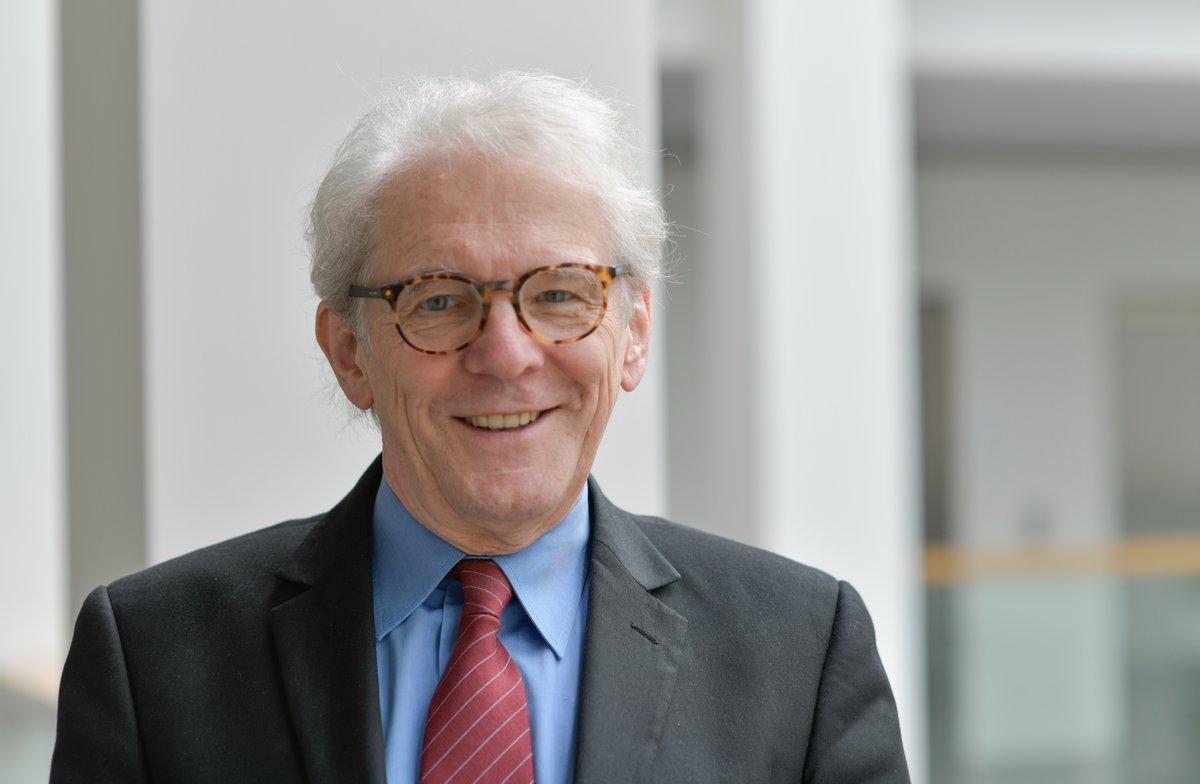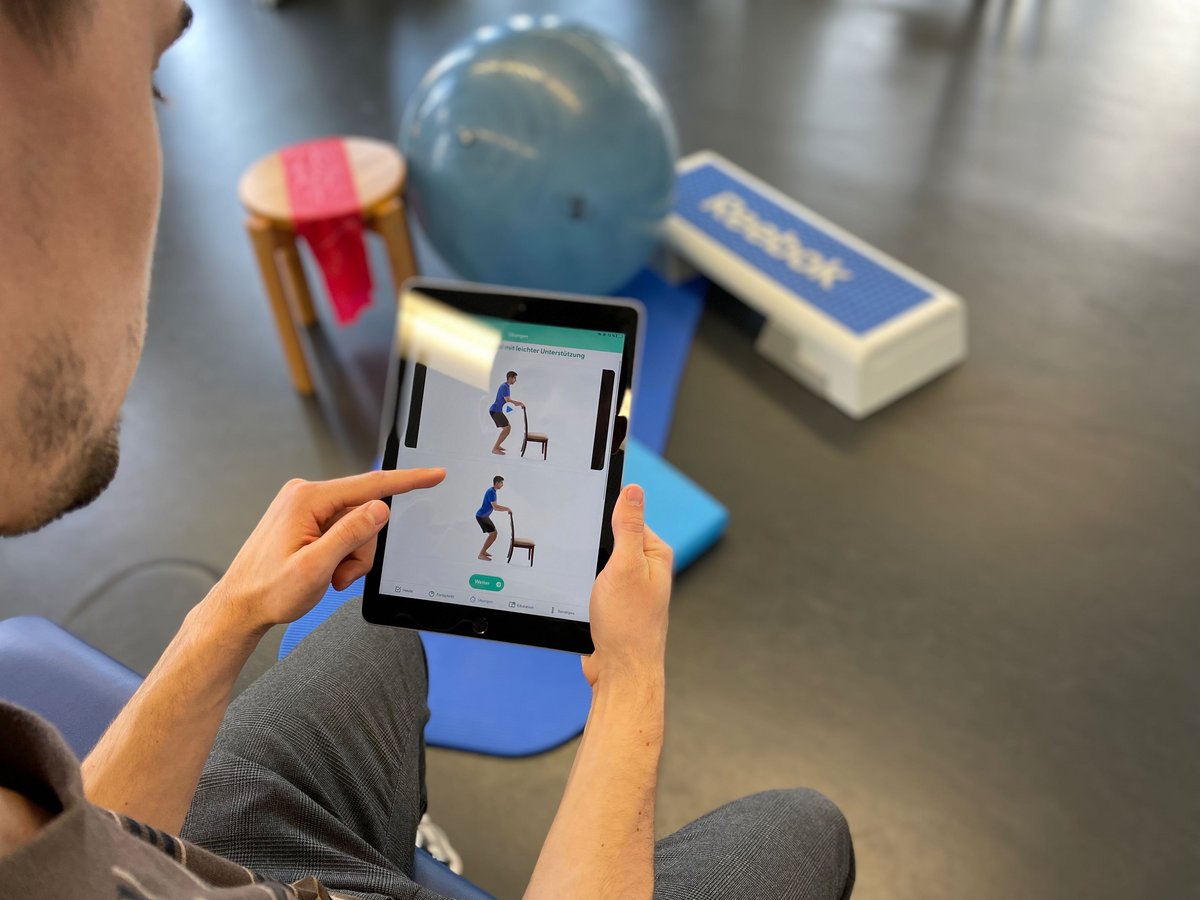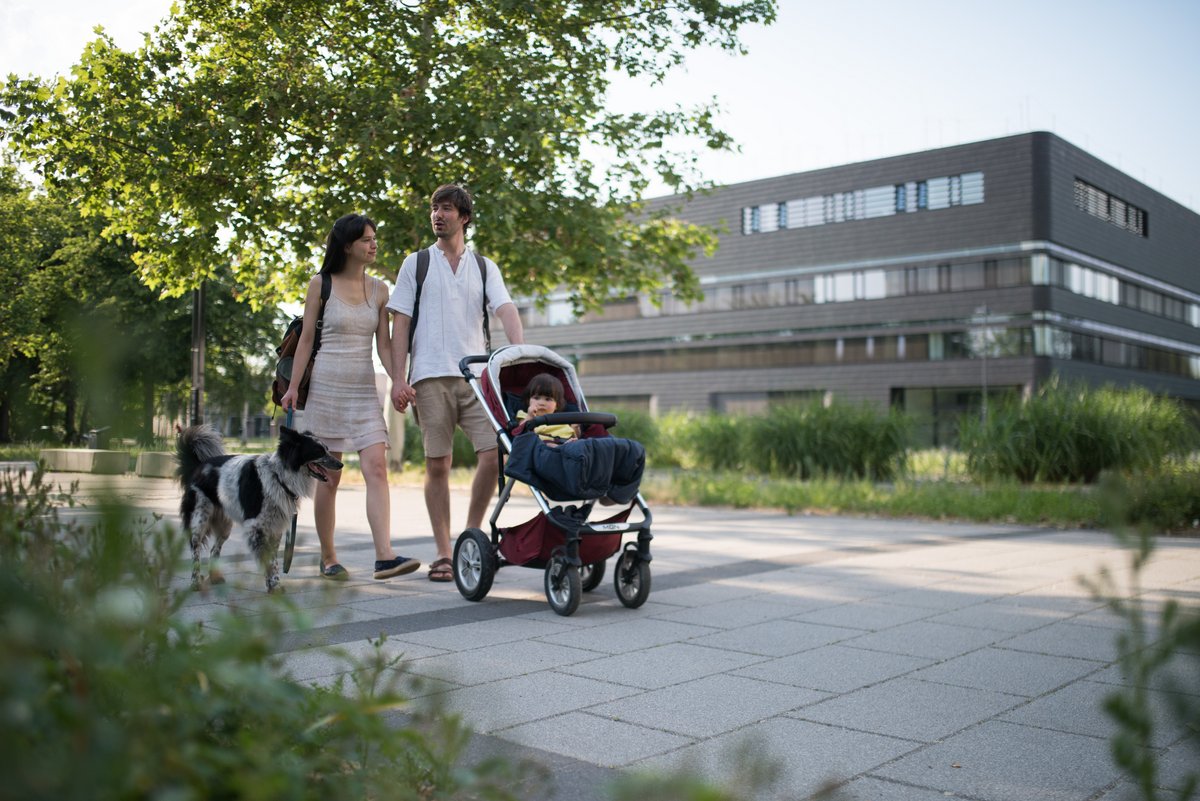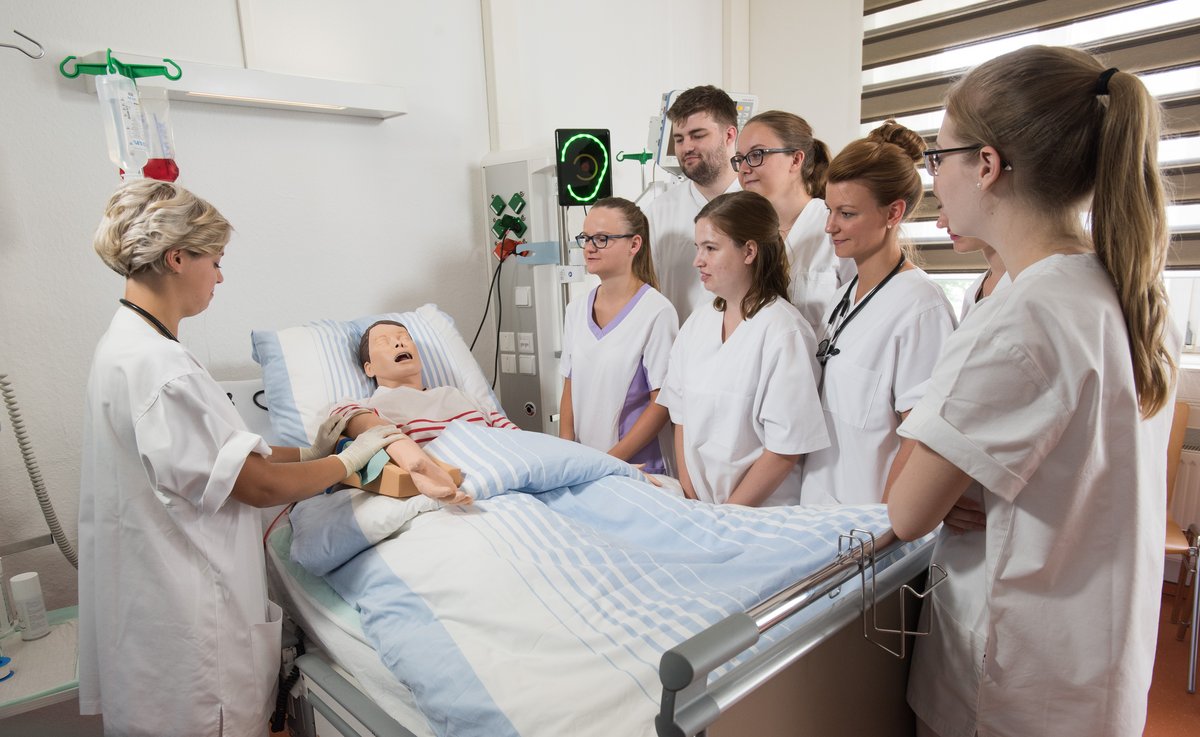Ready for university medicine
With the establishment of the "Innovation Center University Medicine Cottbus (IUC)", there will be a new medical faculty at the Brandenburg University of Technology Cottbus-Senftenberg (BTU) from 2024. "This will make the university the strongest university in the state in terms of personnel and funding virtually overnight," says BTU President Prof. Dr. Gesine Grande.
In perspective, 80 new professorships and a planned annual budget of 150 million euros will ensure the medical education of the future, revolutionize health care in the state and strengthen medical research. With 200 new medical students per year and additional students from the planned master's programs in Medical Data Science, Health Sciences and Advanced Nursing Practice at the IUC, the BTU will be able to educate 10,000 students in the future. This makes the establishment of a university medical center in Cottbus with the IUC one of the largest and most sustainable projects in the structural transformation of Lusatia.
Prof. Dr. Karl Max Einhäupl, chairman of the expert commission that is to develop the concept for university medicine in Cottbus, says:"With its innovative profile features, the IUC will close a gap in medical research in Germany: Health systems research will be mapped in its disciplinary diversity and integrated into the medical faculty of the IUC. In conjunction with the second focus - digitization of healthcare - the IUC will become a nationally and internationally visible beacon for innovative care concepts."
Structure of the medical studies program
The planned innovative model course of study in human medicine is based on the draft bill for the new licensing regulations for physicians and the "National Competence-Based Learning Objectives Catalog for Medicine." The task and goal of the human medicine program at the IUC is to train a new generation of physicians. The medical education includes the study of human medicine with a duration of six years (twelve semesters). After passing all examinations, the student obtains the title of doctor, completes an internship year and specializes within the framework of specialist training.
The modularized structure of the integrating curriculum is oriented at an early stage to a catalog of very different clinical pictures in order to link theoretical and clinical knowledge. Above all, practical relevance through contact with patients and joint training formats with other healthcare professions are to be at the forefront of the Cottbus study program. The plan is for medical students to attend joint courses with students from other BTU degree programs from the very first semester. In this way, cooperation in multiprofessional teams, the joint care of patients and communication with other disciplines can be practiced and strengthened at an early stage.
A main focus will be on general medical competence in order to counteract the demographically induced shortage of physicians in the region. In the last year of medical school, there is a coherent practical training: the practical year (PJ). This is divided into three twelve-week training periods, each in the field of surgery, internal medicine, and general medicine or in another clinical-practical field.
New teaching formats at the BTU
The BTU is planning new teaching formats that are compatible with the IUC and will be incorporated into the study of human medicine - for example, in the field of artificial intelligence (Bachelor: "Artificial Intelligence", Master: "ArtificialIntelligence"), biotechnology (Bachelor: "Life Science and International Health"), electrical and mechanical engineering (Bachelor: "Medical Technology"), and health and health care research (Bachelor: "Community Nurse", Master: "Advanced Health Care Practice and Research"). In particular, the planned "Community Nurse" degree program will improve medical care in Lusatia. It will produce nurses with additional qualifications who will take on preventive and advisory tasks and, for example, accompany people with chronic illnesses. In addition, graduates of this program will be able to provide medical services that are currently the exclusive responsibility of physicians.
Medicine strengthens BTU focus areas
The BTU - the only technical university in the state of Brandenburg - will integrate the medical faculty into its existing teaching and research structures. Medicine is part of the BTU profile line"Health and Life Sciences" as well as the cross-cutting theme "Artificial Intelligence and Sensor Technology".
Under the umbrella of the Lusatia Science Park - the science and innovation park on the former airfield site in Cottbus, which is also under construction - cooperation between the scientific institutions on the BTU campus and the IUC is to be intensified on a topic-related basis.
"Through interdisciplinary and cross-institutional cooperation, we want to establish nationally and internationally visible and leading research clusters within our profile lines," explains Prof. Dr. Michael Hübner, Vice President for Research and Transfer at Brandenburg University of Technology Cottbus-Senftenberg. According to Hübner, the Lusatia Science Park can strengthen the connection between BTU and IUC through its bridging function and further expand the transfer services to society and the economy.
The principle of "innovation through convergence" is the basis for a broad, interdisciplinary research concept in cooperation with the existing faculties and institutes of the BTU, such as health sciences, law, economics and social sciences, natural sciences and engineering, and computer science. For example, cross-professional research foci can be implemented with the Institute of Health and built up into a lighthouse of the BTU - together with the already existing nursing and midwifery sciences as well as physiotherapy.
Autonomy through integration
The planned organizational form of the integration model combines the medical faculty with the university hospital, thus bundling responsibility for research, teaching and patient care under one roof. This gives the University Medical Center the greatest possible autonomy, especially with regard to financing, personnel and organization.
As a unique selling point, the IUC's research focus will be on health systems research and the digitization of healthcare. "This will result in a wide range of cooperation opportunities with the BTU's research focuses in computer science and artificial intelligence, microsensors and electronics, health and health care research, biotechnology/biomedicine and in interprofessional university teaching," says BTU Vice President Hübner.
The "Model Region Health Lusatia" is to develop into an innovation hub for digitalization and health system research. This will be made possible by the connection between the BTU and the Carl Thiem Clinic, the cooperation of the Faculty of Medicine with other disciplines at the BTU, and close collaboration with non-university research institutions (e.g. Fraunhofer and Leibniz Institutes, Robert Koch Institute) as well as health, care and technology companies.
Strong in the network
Medical research is already taking place at the BTU today - and in very different areas, for example on the topics:
- Using physiotherapy and an app to combat osteoarthritis
- The future of water rescue
- Tracking dementia in the blood
- Family influence on health5G for improved healthcare
"Medicine / Life Science" is also one of the topics that play a central role in the Innovation Campus Electronics and Micro-Sensor Technology Cottbus (iCampus for short). In the iCampus, four non-university research institutions and the BTU Cottbus-Senftenberg have been working together since the end of 2019 on the research and development of novel electronic and optical microsystems, including for medical applications.
Further collaborative projects are in the starting blocks: The BTU's biotechnology department will collaborate with non-university research institutes and companies in the region in the field of molecular medicine under the umbrella of the Lausitz Biotech Health Campus to research a new generation of medicines and the use of stem cells, and to promote spin-offs.
The planned Lusatian Center for Digital Public Health (LauZeDiPH) in Senftenberg will research population health in Lusatia in collaboration with the Robert Koch Institute and the Leibniz Science Campus for Digital Public Health and, on this basis, develop needs-oriented, health-promoting digital offerings for the people of the region. Existing collaborations in medicine-related research projects with non-university research institutions such as the Fraunhofer Institute for Photonic Microsystems (IPMS), the Fraunhofer Institute for Applied Polymer Research (IAP) or the Bioanalytics and Bioprocesses Division of the Fraunhofer Institute for Cell Therapy and Immunology (IZI-BB) are also to be expanded to include new partners. Above all, the BTU's close cooperation with the Berlin Charité, the Berlin Institute of Health (BIH), the Hasso Plattner Institute (HPI) in Potsdam, the Robert Koch Institute and with other non-university research institutes are of particular importance for the successful development of university medicine.
Strengthening both BTU locations: Cottbus and Senftenberg
"All the research projects will have a considerable leverage effect through innovation, transfer and the associated relocation of companies and startups, which will create attractive jobs in Lusatia," Michael Hübner is certain. He attaches particular importance to the relationship between university medicine and the Senftenberg site, which is to be strengthened and promoted, since the latter has developed strongly in the direction of health, life sciences and molecular medicine in recent years. The vice president for research and transfer sees the close interrelationships between university medicine at the Cottbus site and the Institute of Health at the BTU Senftenberg campus as a huge potential for both institutions. "The Senftenberg Health Campus will become an important cooperation partner for University Medicine, but it needs its own strong growth momentum, for example, through additional degree programs for health professions, through the university's research orientation and, last but not least, by attracting non-university research institutions." The BTU president is convinced: "If all this succeeds, university medicine will also be an indispensable building block for the successful further development of the BTU and for successful structural change in Lusatia."








